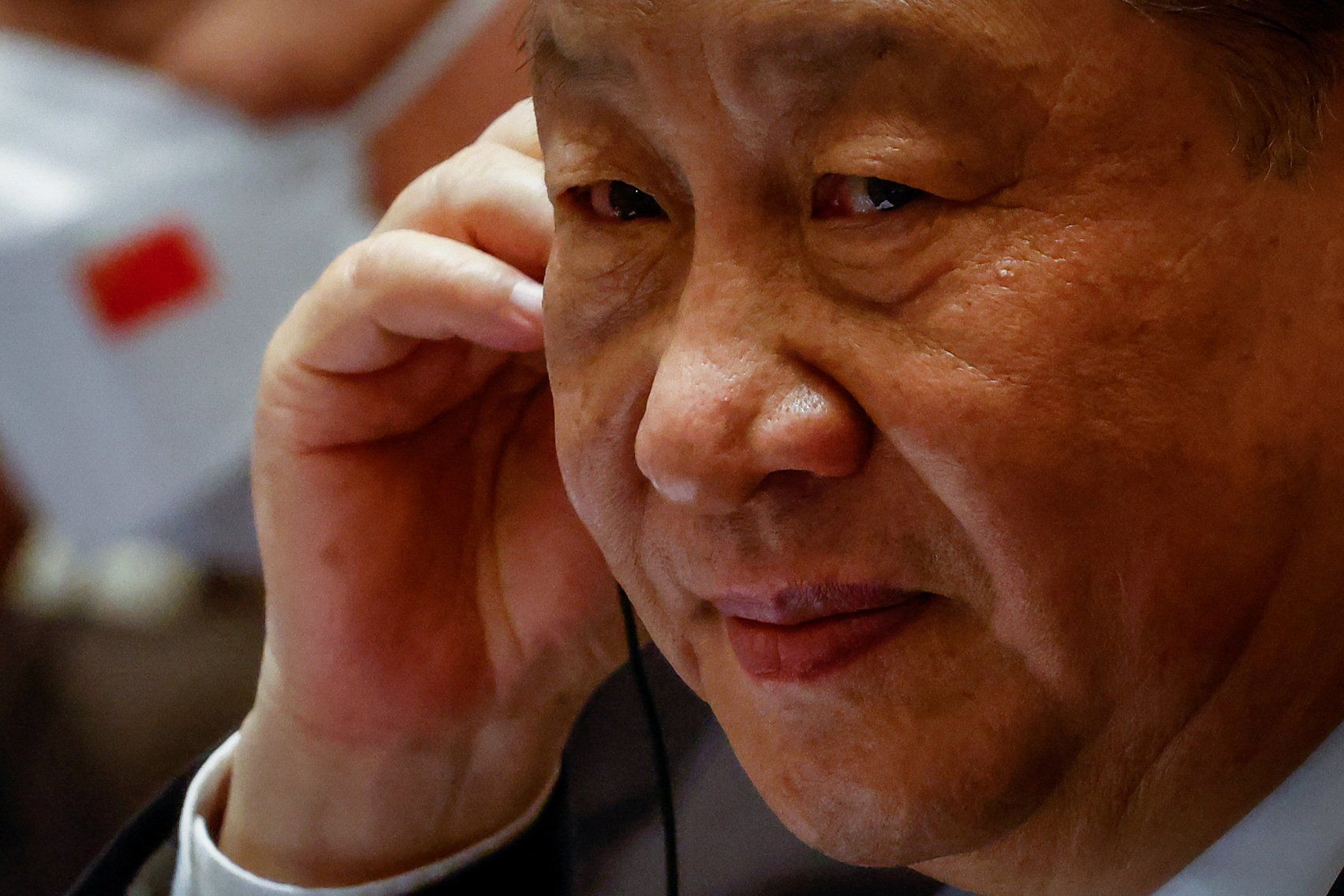China can end the war in Ukraine. Xi Jinping is the one major world leader that both Russia’s Vladimir Putin and Ukraine’s Volodymyr Zelensky would gladly meet with. And China is the one country that has both the carrots and the sticks that can persuade Putin and Zelensky to accept the tough-to-swallow compromises needed to make peace.
China has leverage with Russia. Europe’s post-invasion refusal to buy Russian oil and gas sharply increases China’s importance as an energy buyer. In fact, China bought a record amount of Russian energy over the first half of this year, thanks in large part to the steeply discounted price the war has forced Russia to offer.
But China has more energy suppliers than Russia has alternative high-volume buyers. A Chinese decision to reduce those imports would hurt Russia far more than China. China is also a major supplier of computer chips and other products Russia badly needs and can’t buy elsewhere. These facts give Xi real leverage with Putin if he wants to use it.
Xi can tell his friend Putin that he must accept a peace deal that brings Russia a modest amount of Ukrainian land that he can use to declare “victory” in return for letting the rest of Ukraine go. Even if that means the remainder of Ukraine one day joins NATO and the EU.
Putin, of course, will oppose any such suggestion. But if Xi privately advises his friend that refusal means China will publicly distance itself from Russia’s invasion and apply heavy economic pressure on his government, Putin will have to listen. With China on board, Putin looks much more powerful. Were Xi to publicly back away, Putin would be far more isolated.
Xi can then promise that a peace deal with Ukraine will bring China and Russia economically and politically closer than ever before … and that China will pay to rebuild and modernize Russia’s war-depleted military.
From Xi’s point of view, pushing Putin toward peace isn’t a betrayal. It’s a credible plan to save Russia from a disastrous war before much more damage is done. He’s giving Putin the “off ramp” the Russian president can’t (or won’t) create for himself.
And if Putin isn’t ready to cut this deal now, wait through a few more months of military frustration with continuing Western support for Ukraine.
China has leverage with Ukraine. Xi can assure Zelensky that if Ukraine will make the hard choice to surrender the Donbas region and Crimea, that China can stop the war, invest billions in the country’s reconstruction, and free Ukraine to join Western clubs. (Let Ukraine and the West argue over when and how.)
Ukraine gets peace, a European security guarantee, underwritten by Chinese infrastructure investment, and a new lease on life as an independent nation with powerful friends and allies.
Xi can use this plan to divide Europe from the United States, an outcome that expands China’s global influence. Most European leaders would surely cheer an end to the war and reconstruction of Ukraine that Europe doesn’t have to pay for.
US officials would not look happily on China’s ability to make new friends and extend its influence in Europe, but Washington would be hard-pressed to block a peace plan that everyone else favors.
China can use this plan to enhance its reputation as a leader and peacemaker around the world. The Americans could not have made this deal, Xi can fairly claim. Only China has the power and the will to stop this terrible war, ending the pressure the war creates on food and energy supplies and prices for poor countries and stopping the killing of innocents.
That’s a huge propaganda win for Beijing. At a time of frustratingly slow economic growth at home, Xi can use that win.
Xi has already shown he wants to play peacemaker. He brokered a minor deal between Saudi Arabia and Iran this spring, and he has already offered a sketch of a Ukraine peace plan, though its current form lacks the detail needed to make it credible. Xi has even been understanding in response to a Russian strike on Ukrainian cities last week that destroyed a facility that contained grain reportedly destined for export to China and damaged a Chinese consulate building.
Obviously, as with any plan to end a war, several hundred devils lurk in the details. But Xi has real leverage, even with Putin, if he wants to use it. What’s stopping him?
- A world of conflict: The top risks of 2024 - GZERO Media ›
- Overlooked stories in 2023 - GZERO Media ›
- Podcast: Trouble ahead: The top global risks of 2024 - GZERO Media ›
- Putin needs Xi to win the war in Ukraine - GZERO Media ›
- Why Ukraine invaded Russia - GZERO Media ›
- Is Ukraine running out of time? Former US ambassador Ivo Daalder sizes up the Russia-Ukraine war - GZERO Media ›
